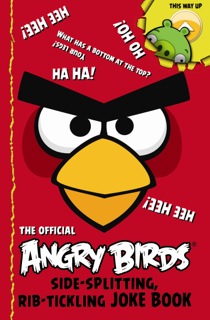Angry Birds started life as a mobile app but it’s since become a sprawling merchandising and rights licensing empire for its creator Rovio — helping it rake in earnings of $106m in 2011. From clothes, to plush toys and even entire theme parks, the irate birds and smug pigs have succeeded in flinging themselves onto an alarming variety of shelves, spaces and places, as well as being firmly lodged in the pockets of millions of mobile phone owners.
The latest merchandising move for Rovio is a partnership with children’s books publisher Egmont to bring out a line of Angry Birds kids books in the UK, the Republic of Ireland and English-speaking Commonwealth countries. Angry Birds is the first mobile app Egmont has transmuted to paper but the company has previously made books using online gaming and virtual worlds as the subject matter.
The Angry Birds book range will kick off with a “double-sided” joke book (pigs on one side, birds on the other) aimed at the over-fives and priced at £4.99 (around $8), which will launch in time for Christmas. It will expand to additional titles next year, including a ‘Punch Out’ book and a ‘Search and Find’ title.
Side-stepping the obvious point — i.e. that Egmont is smacking its lips at the prospect of carving itself a slice of Rovio’s bird-and-pig-flavoured cash-cow — the publishing group’s MD, David Riley, said the company hopes putting Angry Birds inside children’s books might encourage more kids to put down their phones and pick up some books.
“Its rich source of humour and characters makes it the perfect publishing brand and with fans in their millions, we hope the books will inspire some of those 75 per cent of 8-12 year olds who own a mobile phone to get into reading,” he noted in a statement.
The Angry Birds book launch will be backed by an advertising drive on children’s websites and via social media outlets. The publisher also plans to advertise in 147 primary schools in the U.K. — potentially getting on the pester radar of 39,000 kids.
